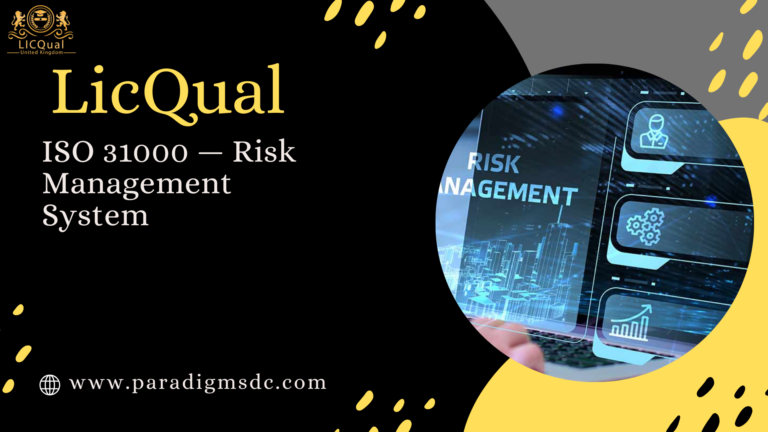Course Introduction
The ICTQual Diploma in Environmental Engineering is designed for individuals passionate about making a significant impact on the environment through engineering solutions. This comprehensive program equips students with the knowledge and skills required to tackle environmental challenges, promoting sustainability and responsible management of natural resources. Whether you’re looking to start a career in environmental engineering or enhance your existing expertise, this diploma offers a pathway to a rewarding and impactful profession.
Course Overview
The ICTQual Diploma in Environmental Engineering covers a broad range of topics, ensuring a holistic understanding of the field. The curriculum is structured to provide both theoretical knowledge and practical experience, preparing students to address real-world environmental issues effectively. The course is delivered through a combination of lectures, hands-on projects, and industry collaborations, ensuring students gain valuable insights and experience.
Course Study Units
- Introduction to Environmental Engineering
- Environmental Regulations and Policies
- Water and Wastewater Engineering
- Environmental Impact Assessment
- Environmental Monitoring and Modeling
- Sustainable Energy Systems
- Environmental Risk Assessment
- Green Engineering and Sustainable Design
- Professional Practice and Ethics
Learning Outcomes
Upon completing the ICTQual Diploma in Environmental Engineering, students will be able to:
- Introduction to Environmental Engineering:
- Understand the fundamental principles and concepts of environmental engineering.
- Identify the various components of environmental systems and their interactions.
- Analyze environmental problems and propose engineering solutions considering sustainability and ethical considerations.
- Environmental Regulations and Policies:
- Demonstrate knowledge of environmental laws, regulations, and policies at local, national, and international levels.
- Understand the roles of government agencies, non-governmental organizations, and industry in environmental policy development and implementation.
- Evaluate the effectiveness and limitations of environmental regulations in addressing environmental challenges.
- Water and Wastewater Engineering:
- Describe the processes involved in water treatment, distribution, and wastewater collection, treatment, and disposal.
- Apply engineering principles to design and optimize water and wastewater treatment systems.
- Assess the environmental and public health impacts of water and wastewater management practices.
- Environmental Impact Assessment:
- Identify and evaluate potential environmental impacts associated with development projects and activities.
- Utilize environmental assessment methodologies and tools to predict, quantify, and mitigate environmental impacts.
- Communicate findings and recommendations effectively to stakeholders and decision-makers.
- Environmental Monitoring and Modeling:
- Apply various monitoring techniques to assess air and water quality, soil contamination, and ecological health.
- Utilize environmental modeling software to simulate and predict environmental processes and impacts.
- Interpret monitoring and modeling results to inform environmental management and decision-making.
- Sustainable Energy Systems:
- Identify renewable energy sources and technologies and their potential contributions to sustainable development.
- Evaluate energy systems and technologies based on their environmental, economic, and social impacts.
- Propose strategies for integrating renewable energy into existing energy infrastructure and promoting energy efficiency and conservation.
- Environmental Risk Assessment:
- Identify and characterize environmental hazards and assess their potential risks to human health and the environment.
- Apply risk assessment methodologies to quantify and prioritize environmental risks.
- Develop risk management strategies to minimize or mitigate environmental risks and enhance resilience.
- Green Engineering and Sustainable Design:
- Apply principles of green engineering and sustainable design to develop environmentally friendly products, processes, and infrastructure.
- Evaluate the life cycle environmental impacts of engineering projects and identify opportunities for improvement.
- Integrate sustainability considerations into engineering decision-making processes and practices.
- Professional Practice and Ethics:
- Understand the ethical responsibilities and professional obligations of environmental engineers.
- Apply ethical principles and standards to decision-making and problem-solving in environmental engineering practice.
- Communicate effectively and collaborate ethically with colleagues, clients, and stakeholders.
Course Benefits
- Comprehensive Curriculum: A well-rounded program covering all critical aspects of environmental engineering.
- Practical Experience: Hands-on projects and industry collaborations provide real-world experience.
- Expert Faculty: Learn from experienced professionals and academics in the field of environmental engineering.
- Career Opportunities: Opens up various career paths in both public and private sectors, including roles in environmental consultancy, government agencies, and NGOs.
- Sustainability Focus: Emphasis on sustainable practices and solutions that benefit the environment and society.
Who is This Course For?
The ICTQual Diploma in Environmental Engineering is ideal for:
- Recent graduates seeking a career in environmental engineering.
- Professionals looking to transition into the environmental sector.
- Engineers and technicians aiming to specialize in environmental engineering.
- Environmental enthusiasts eager to make a positive impact on the planet.
- Policy makers and planners involved in environmental projects and regulations.
Future Progression
Graduates of the ICTQual Diploma in Environmental Engineering can pursue further studies or professional certifications, such as:
- Advanced degrees (Master’s or Ph.D.) in Environmental Engineering or related fields.
- Specialized certifications in areas like air quality management, water resources, or renewable energy.
- Professional Engineer (PE) licensure, which can enhance career prospects and credibility.
- Leadership roles in environmental consultancy firms, governmental bodies, and international organizations focused on sustainability and environmental protection.
Embark on a journey to make a difference with the ICTQual Diploma in Environmental Engineering, where you’ll gain the expertise to create sustainable solutions for a better world







